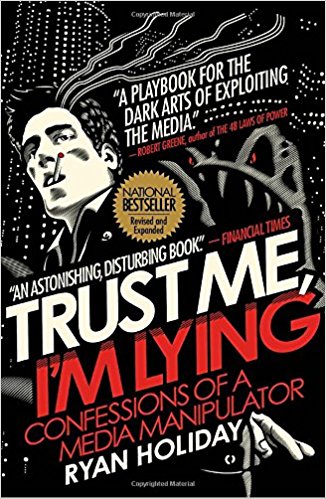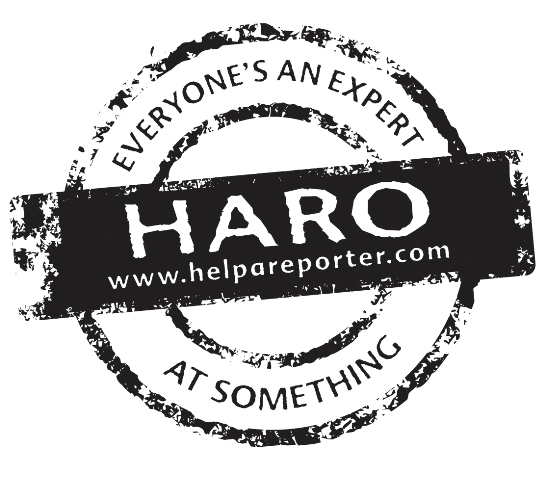Freshman Convocation, held on September 28th, was a reflection session held to recap and discuss Ryan Holiday’s book Trust Me I’m Lying: Confessions of a Media Manipulator. While there, Stockton Provosts and current Student Senate President Victoria Dambroski had given introductions explaining what a freshman convocation is and how one can use these types opportunities to become more active within the community. Essentially, although Stockton does have guest speakers throughout the year, Freshman Convocation is slightly different because it only occurs once in the fall semester, usually the last Thursday of September. This event is particularly helpful to freshman students since the author of the book, often used for their summer reading and class discussion, is usually the guest speaker. While at this event one is not only able to meet one of their Honors Freshman Seminar dialogue session requirements, but they also have to opportunity to sit in on an interesting and enlightening experience where the author elaborates on the book’s central ideas far beyond the written text.

Once introduced, Ryan Holiday begins his presentation by explaining his own background when it comes to authors and where his career as a media manipulator began. Right from the start, he begins to stress the idea of pursuing one’s own passions. Holiday states that “if you love what you do, you don’t think of it as a profession”. This quote becomes essential to his confession at hand for two main reasons. Firstly, as young college students experiencing their first semester in college, it is often intimidating to already know the exact plan for one’s future. However, with the courage and willingness to take new opportunities as they arise, one can ultimately find their way in the end. The second reason this particular quote remains relevant to his presentation because Holiday did not originally want to be a media manipulator from day one. Nevertheless, he followed his passion and interest in writing. This eventually led him to internships and positions working alongside public figures and companies such as Tucker Max, Robert Green, and American Apparel. It was this journey through the vast world of media that helped Holiday both discover the flaws within the system and realize that the deceptive life of a media manipulator was no longer for him.
 Be that as it may, Holiday explains how there was no instantaneous moment in which he got the idea for this book. Instead, this book was crafted due to multiple factors that had been influencing him at the time. He confesses how there were both anger and passion behind his writing within the work, but at the same time, much of his frustration did not all stem from the same source. He was not only frustrated with the corrupted media system itself, but he was also upset by how susceptible today’s consumers have become. He wrote this confession in order to enlighten the audience and clarify what actually goes into crafting today’s latest headlines. Holiday constructs the analogy of viewing the media and its’ tricks as a sausage factory. “Think of it similar to how sausage is made,” he proposes, essentially everyone knows to some extent that the process is corrupt; however no one really wants to know every gruesome detail of what occurs behind the scenes. When exposing some of the media’s deceptive devices, Holiday begins to call into question how much of what the audience sees is true. This being said, it’s it reasonable to question the validity of the latest media, since he even gives prime examples of how bloggers nowadays have looked to Help A Reporter Out (HARO); a site that has basically become “the Craig’s List of journalism,” where users can become expert sources for any subject that is advertised. While being a user of such site, Ryan Holiday even admitted to contriving information about himself, in order to be quoted in other’s stories and blogs.
Be that as it may, Holiday explains how there was no instantaneous moment in which he got the idea for this book. Instead, this book was crafted due to multiple factors that had been influencing him at the time. He confesses how there were both anger and passion behind his writing within the work, but at the same time, much of his frustration did not all stem from the same source. He was not only frustrated with the corrupted media system itself, but he was also upset by how susceptible today’s consumers have become. He wrote this confession in order to enlighten the audience and clarify what actually goes into crafting today’s latest headlines. Holiday constructs the analogy of viewing the media and its’ tricks as a sausage factory. “Think of it similar to how sausage is made,” he proposes, essentially everyone knows to some extent that the process is corrupt; however no one really wants to know every gruesome detail of what occurs behind the scenes. When exposing some of the media’s deceptive devices, Holiday begins to call into question how much of what the audience sees is true. This being said, it’s it reasonable to question the validity of the latest media, since he even gives prime examples of how bloggers nowadays have looked to Help A Reporter Out (HARO); a site that has basically become “the Craig’s List of journalism,” where users can become expert sources for any subject that is advertised. While being a user of such site, Ryan Holiday even admitted to contriving information about himself, in order to be quoted in other’s stories and blogs.
All in all, Holiday concludes his presentation by proposing the idea that it is now the responsibility of the audience to use this information he provides in order to move in a new direction for the future. He makes the argument that each individual’s time is limited upon this Earth; hence, one should not let the “opportunity cost of pointless information” waste their time. Upon the conclusion of this seminar, one does leave as a more educated consumer of information. Yet, in reality, each individual now carries the hefty decision of which side they choose to be on within this war for truth.
